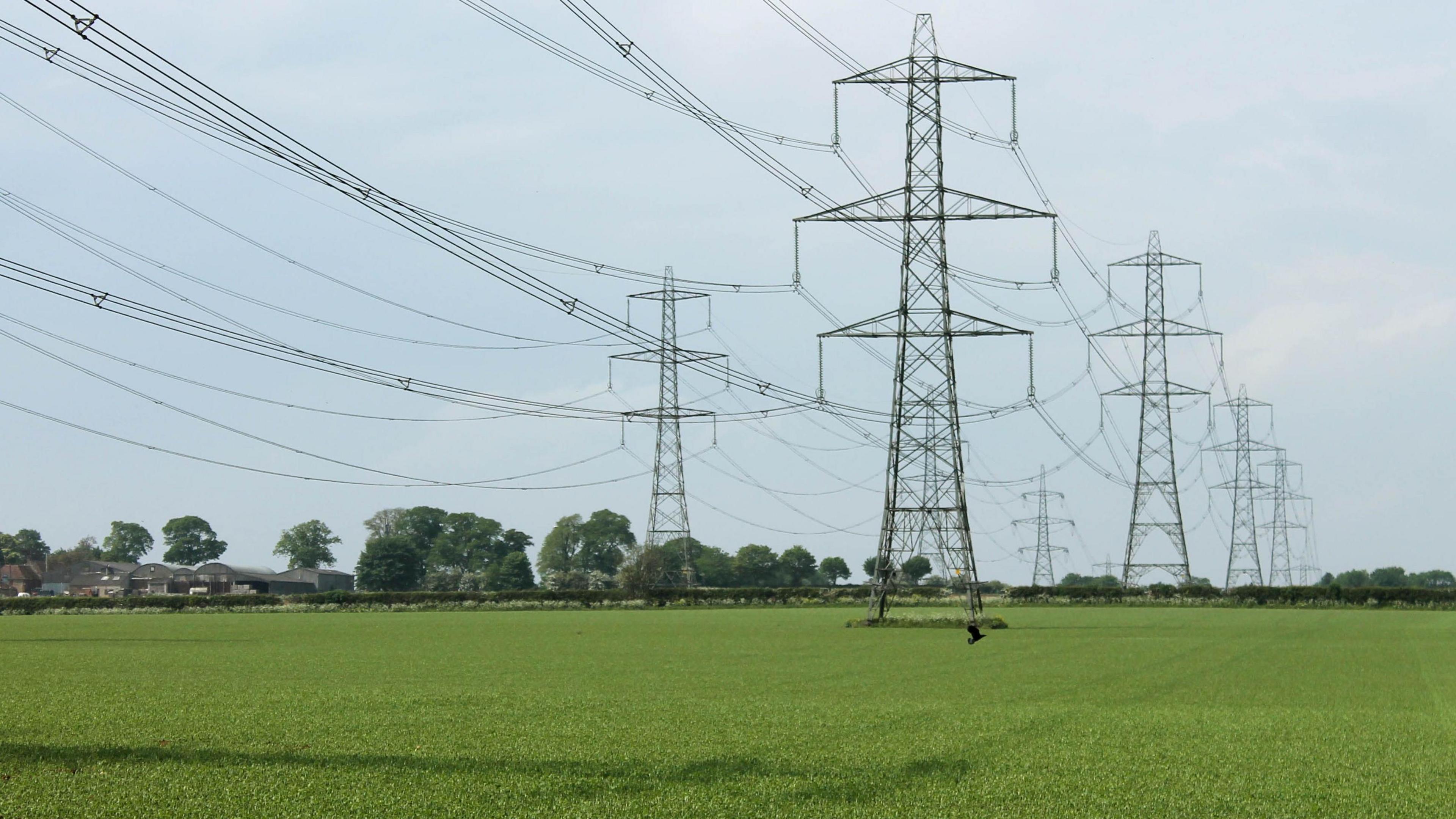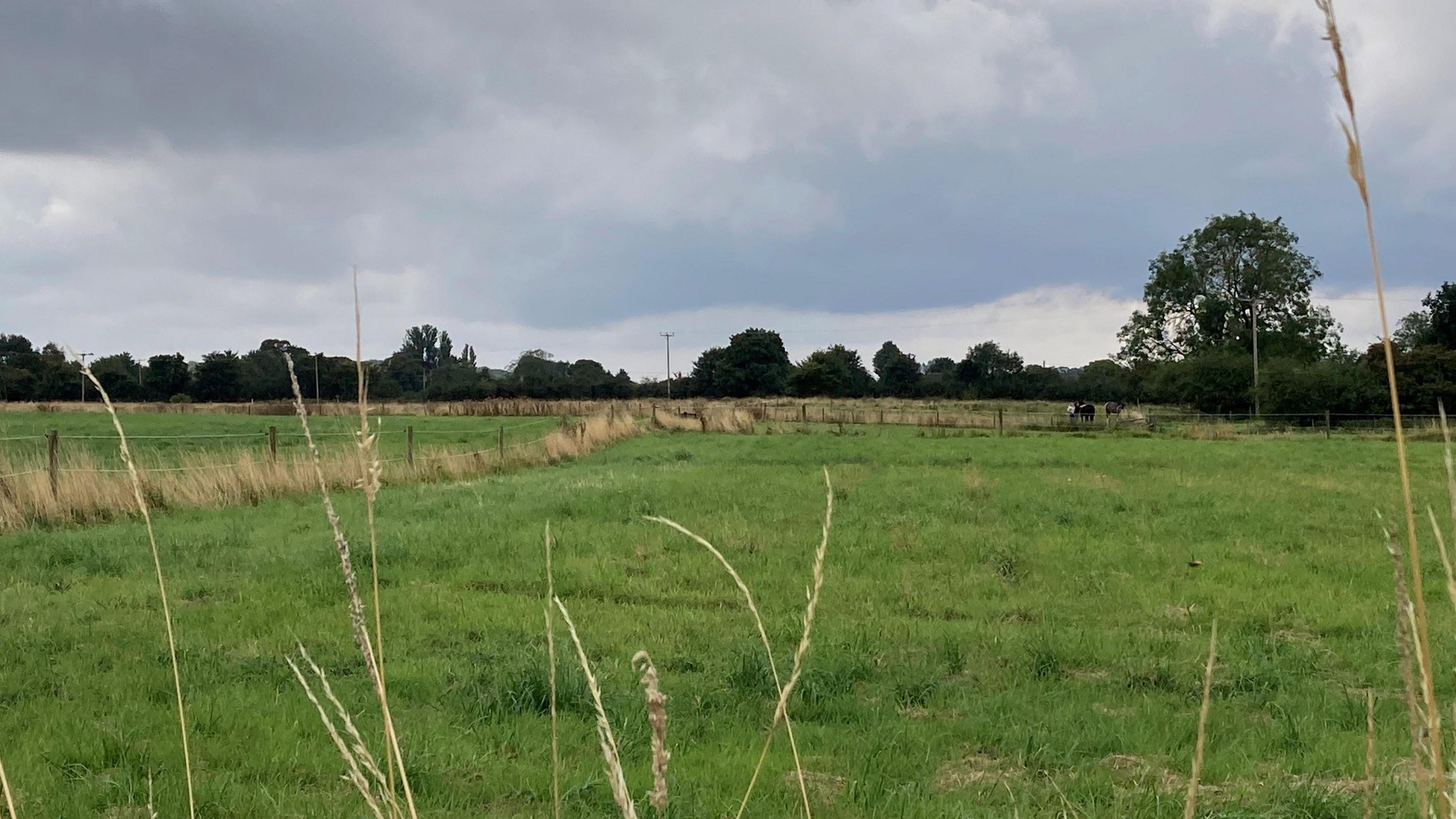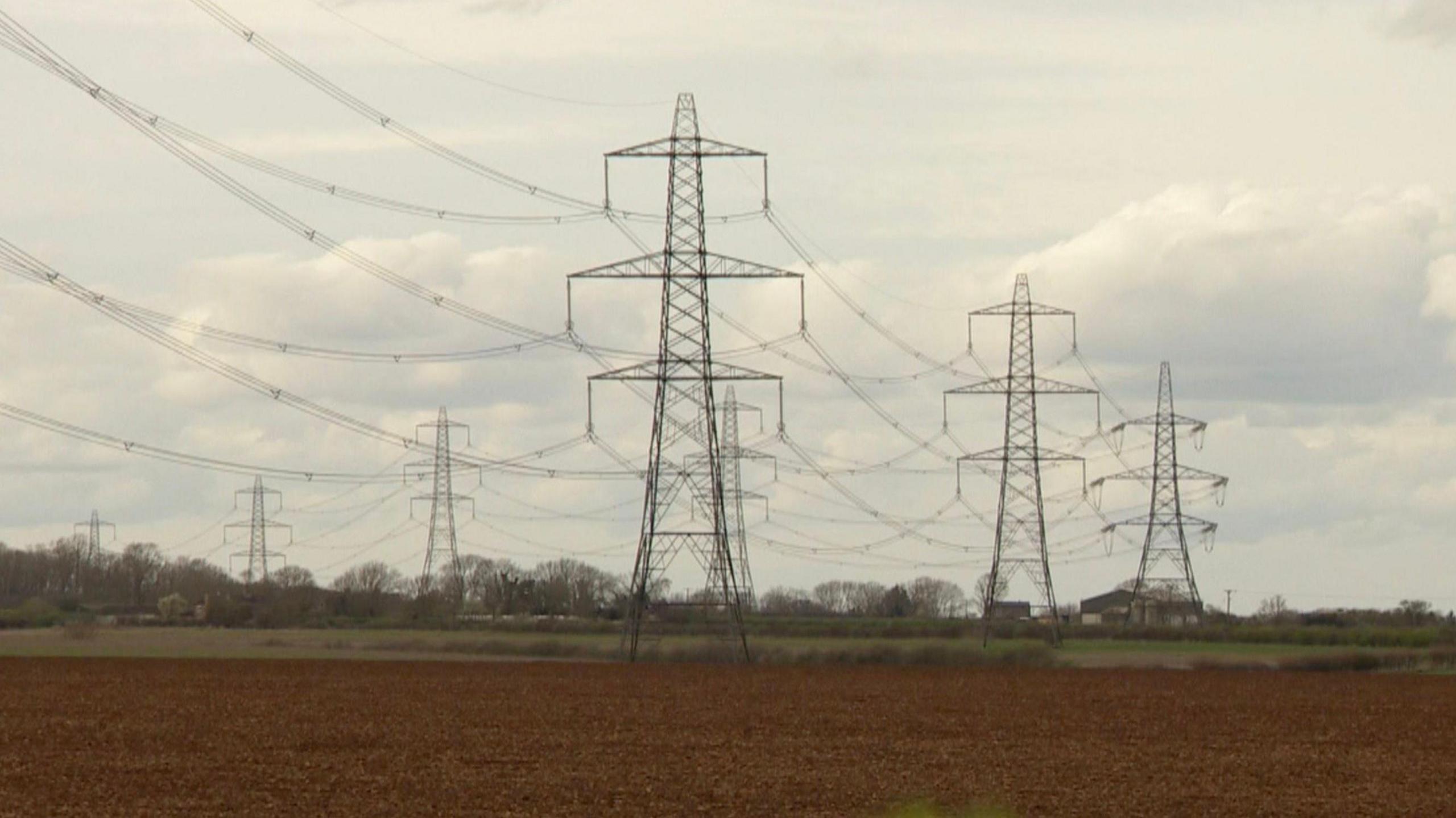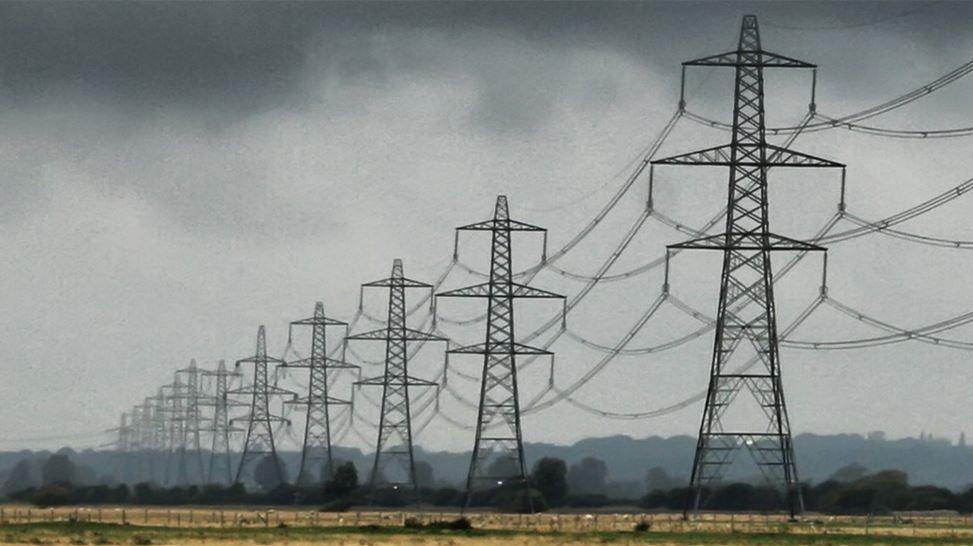Councils to work together to oppose pylon plans

The proposed new network of pylons is part of what National Grid calls the Great Grid Upgrade
- Published
Lincolnshire County Council says it will work with its counterparts in Norfolk, Suffolk and Essex to oppose National Grid’s plans to install hundreds of pylons along the east coast.
Officials met this week to discuss plans for the proposed network of overhead lines stretching from Grimsby to Tilbury in Essex.
The council said the scheme would “irreversibly change the character of our county” and was “unacceptable”.
Under the project, dubbed 'The Great Grid Upgrade' by National Grid, 470 pylons could be installed across Lincolnshire.
The authority has previously criticised the proposed network, arguing it would impact farming and holiday destinations.
Together the councils are hoping to convince National Grid to consider alternative options such as underground cables, though the firm has previously ruled that out on the grounds of cost.
Council leader Martin Hill, said the pylons would "irreversibly change the character of our county and other options should be considered.”
He said the council were speaking with councillors in Norfolk, Suffolk and Essex, who he said “share our views that these plans are unacceptable.”
He added: “We believe National Grid have prematurely ruled-out putting cables on the seabed to transport this energy to southern England.
“It now emerges that they have refused to take the views of certain parish meetings into account in their consultation, excluding some directly affected communities from contributing.”
In a joint statement from Norfolk, Suffolk, and Essex County Councils, a spokesperson said: “We have agreed to continue to work together to look at how we proceed, and we will now consider what this means in more detail.”
On its website National Grid said, external: "The costs of alternative technologies to overhead lines can be significantly higher, with the undergrounding of cables around five to ten times more expensive. The cost of offshore solutions – cables under the sea – is also significant.
"One example of where we’ve looked at this is in the East Anglia region, where the cost to consumers of delivering an equivalent offshore cabling solution would be around four times the cost of an onshore overhead line option."
Listen to highlights from Lincolnshire on BBC Sounds, watch the latest episode of Look North or tell us about a story you think we should be covering here, external.
Related topics
- Published5 September 2024

- Published25 June 2024

- Published18 March 2024
